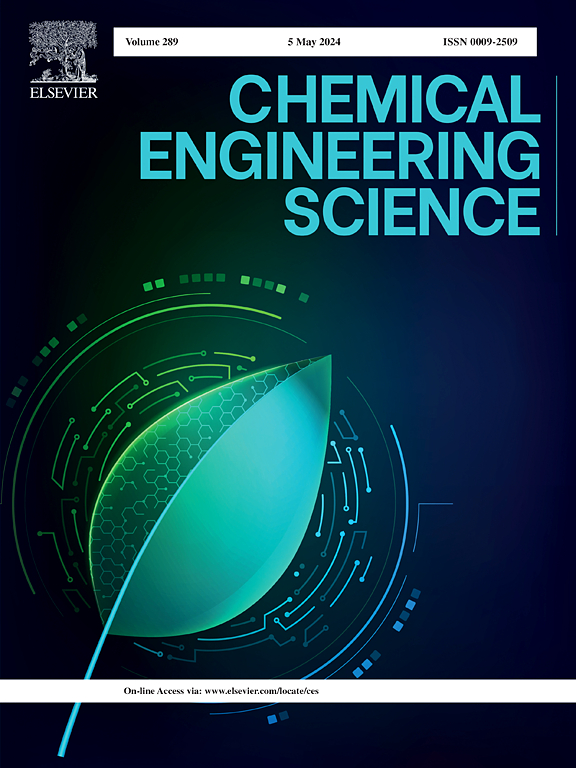Difluoroalkylation of styrene in the continuous-flow microreactor: Process performance and Reaction kinetics
IF 4.1
2区 工程技术
Q2 ENGINEERING, CHEMICAL
引用次数: 0
Abstract
Fluoroalkylation compounds are vital in pharmaceutical and agricultural chemistry. However, conventional batch reactor usually suffers from poor mass transfer and long reaction times. Comparatively, microreactors offer substantial improvement in mass and heat transfer for high-efficient production. Especially, it could innovate the original batch operation mode into continuous production. In this work, a highly efficient continuous flow system is constructed for styrene difluoroalkylation using CuI as a catalyst and BrCF2CO2Et as fluorinating reagent. The influences of reactant ratios, catalyst content, alkali amount, reaction temperature and residence time on reaction performance were investigated systematically. Under optimal conditions, 80% yield was gained in only 0.5 h. The reaction time required is significantly shortened. Meanwhile, the usage of catalyst could also be reduced. Moreover, the kinetics of the styrene difluoroalkylation reaction in microreactor were studied, and the rate constant, activation energy and pre-exponential factor were obtained according to reaction kinetic model.
连续流微反应器中苯乙烯的二氟烷基化:工艺性能和反应动力学
氟烷基化化合物在制药和农业化学中至关重要。然而,传统间歇式反应器存在传质差、反应时间长等问题。相比之下,微反应器为高效生产提供了质量和传热方面的实质性改进。特别是,它可以将原有的批量生产模式创新为连续生产。本研究以崔为催化剂,BrCF2CO2Et为氟化剂,构建了苯乙烯二氟烷基化的高效连续流系统。系统考察了反应物配比、催化剂用量、碱用量、反应温度和停留时间对反应性能的影响。在最佳条件下,产率在0.5 h即可达到80%。所需反应时间显著缩短。同时,还可以减少催化剂的用量。研究了微反应器中苯乙烯二氟烷基化反应的动力学,根据反应动力学模型得到了反应的速率常数、活化能和指前因子
本文章由计算机程序翻译,如有差异,请以英文原文为准。
求助全文
约1分钟内获得全文
求助全文
来源期刊

Chemical Engineering Science
工程技术-工程:化工
CiteScore
7.50
自引率
8.50%
发文量
1025
审稿时长
50 days
期刊介绍:
Chemical engineering enables the transformation of natural resources and energy into useful products for society. It draws on and applies natural sciences, mathematics and economics, and has developed fundamental engineering science that underpins the discipline.
Chemical Engineering Science (CES) has been publishing papers on the fundamentals of chemical engineering since 1951. CES is the platform where the most significant advances in the discipline have ever since been published. Chemical Engineering Science has accompanied and sustained chemical engineering through its development into the vibrant and broad scientific discipline it is today.
 求助内容:
求助内容: 应助结果提醒方式:
应助结果提醒方式:


